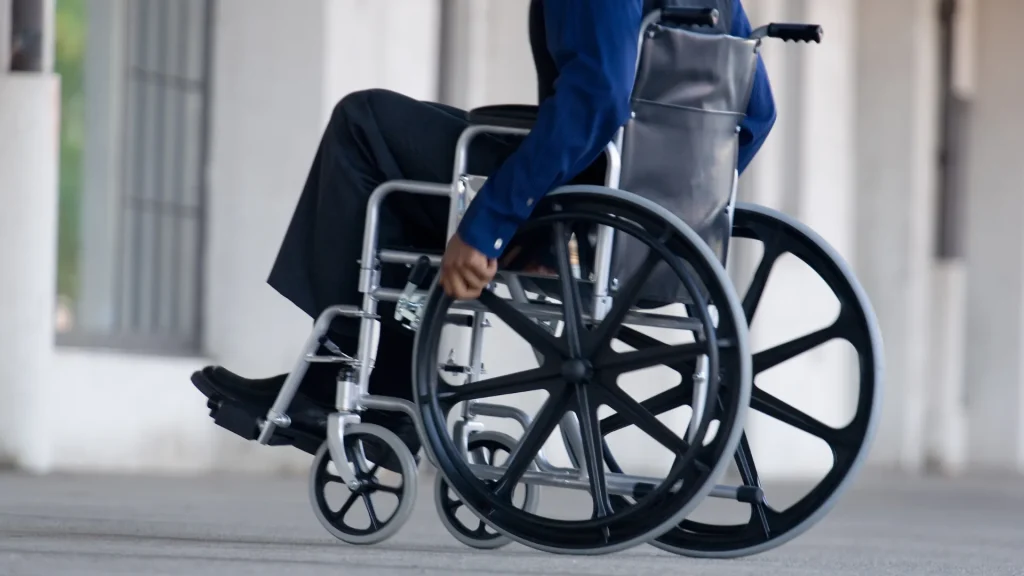
Proving a long-term disability claim can be challenging, but we’re here to help. At Hankey Marks & Crider, we build strong cases on how to prove your long-term disability claim with detailed evidence and a clear strategy. Our long-term disability lawyers in Indiana will make your story precise and fight tirelessly for what you deserve.
Understanding Long-Term Disability Claims
When applying for long-term disability, clear evidence must show that your condition prevents you from working under your policy’s terms.
Indiana State Personnel Department outlines key provisions and eligibility requirements for disability benefits, including distinctions between types of coverage:
- Own-occupation Disability: You’re unable to perform the duties of your specific job.
- Any-occupation Disability: You cannot perform the duties of any job you’re reasonably qualified for based on your education, experience, or training.
Knowing which category applies to you is key because it determines the evidence you’ll need. At the heart of any long-term disability claim is solid proof, like documents and records, showing you can’t work.
The Importance of Medical Evidence
Medical evidence is everything in a long-term disability claim—without it, you have no case. Insurance companies don’t care about your word; they care about documentation. They’ll scrutinize every detail, so your medical records must be clear, thorough, and irrefutable. If it’s not in writing, it doesn’t exist to them.
Key Components of Medical Evidence
- Comprehensive Medical Records: You need detailed records like test results, treatment plans, and therapy notes to show how your condition affects your ability to work. Without this proof, your claim could be denied.
- Physician Statements: You must receive a detailed letter from your doctor explaining your diagnosis, treatment, and how your condition prevents you from working. Without it, your claim may fail.
- Functional Capacity Evaluations (FCE): An FCE checks if you can handle physical tasks like lifting, bending, standing, or carrying. Most insurers ask for this during the long-term disability claim process.
Get your medical evidence in order and make it count. We’ll help you gather your records, connect with your doctors, and present everything in a way that works for your claim.
Your Narrative: Claimant Statements
While medical records provide objective proof of your disability, your account adds depth and context to your claim. A claimant statement allows you to describe how your disabling condition affects your daily life and ability to work.
Tips for Writing a Strong Claimant Statement
Be honest and specific when explaining how your symptoms limit everyday tasks like cooking, cleaning, or driving. Use real examples from your daily routine, like how chronic pain or fatigue makes it hard to stick to a schedule. Your statement must match your medical records because even one inconsistency can make them doubt your credibility. You’re not just sharing your story; you’re helping the insurance adjusters see, feel, and truly understand how your condition affects your life.
Insurance Company Tactics
Insurance companies are in the business of saying no. They’ll question your medical evidence, watch your every move to poke holes in your story, and twist their policies to suit their agenda. But if you understand their tactics, you can anticipate their moves and stay ahead of the game.
Common Tactics to Watch For
- Surveillance and Social Media: Insurers monitor your activities; any contradictions, like being active despite claiming back pain, can lead to denial.
- Independent Medical Exams (IME): Insurers use their doctors to downplay your condition. Bring records, speak up, and stay clear to avoid misrepresentation.
- Subjective Evidence Challenges: Proving chronic pain or mental health issues requires consistent records, strong doctor statements, and credible third-party support.
Cover every angle, stay vigilant, and stay consistent because the moment you give them something to use against you, they will—and that’s how we make sure you stay ahead.
Legal Representation: The Role of Disability Attorneys
Navigating the long-term disability claim process can be overwhelming, especially when faced with denials or delays. This is where a skilled disability lawyer can make all the difference. From gathering evidence to handling appeals, they can direct you through every stage of the process.
Why Work with a Disability Lawyer?
- Expertise in Disability Law: We know these policies inside and out, and we’ll spot the gaps before they become problems.
- Appealing Denied Claims: We don’t back down if they deny your claim. We build an appeal that’s thorough, strategic, and impossible for them to dismiss.
- Protecting Your Rights: We’re your advocates, ensuring they follow the rules and treat you as you deserve.
At Hankey Marks & Crider, our team has extensive experience helping claimants in Indianapolis, Indiana, secure the benefits they deserve. Contact us at (317) 634-8565 for a consultation.
Preparing for Denials and Appeals

A denial isn’t the end—it’s just a setback. Most claims get denied because of missing evidence or minor mistakes in the paperwork. The appeals process gives us a chance to fix that. We can add substantial medical evidence, solid legal arguments, and witness testimony to build a case they can’t ignore. It’s not over until we’ve exhausted every option.
Steps to Appeal a Denied Claim
- First, we get the denial letter. It’s our blueprint for the appeal. We’ll break it down, address every issue, and build the strongest case possible.
- We next gather more evidence. This could include new medical records, updated statements from your doctor, or functional capacity evaluations.
- You need a lawyer who knows the game and can prepare you for whatever comes next. It’s about giving you the best shot.
Proactive Steps to Strengthen Your Claim
If you want to increase your chances of approval, do this:
- Don’t Miss The Deadlines. Be aware of the deadlines and make sure your paperwork is complete to avoid potential rejection.
- Keep a Paper Trail: Track every document. If it’s not in your hands, it’s in theirs, and that’s a problem.
- Stick to the Script: Be truthful and consistent. They’ll find any reason to debunk your story.
- Have the Right Team: You need the right team. Find the ones who know the system inside and out, as you’ll set yourself up for failure without them.
Making Your Long-Term Disability Claim Count
Filing a long-term disability claim isn’t easy, but having the right strategy can make all the difference. At Hankey Marks & Crider, we’ll help you gather the evidence you need, stand up to the insurer, and support you throughout the process. Call our lawyers at (317) 634-8565 or contact us online to get started on a plan that fits your situation and helps you move forward.
Related Posts
Can You Sue for Emotional Distress in Indianapolis, Indiana?


